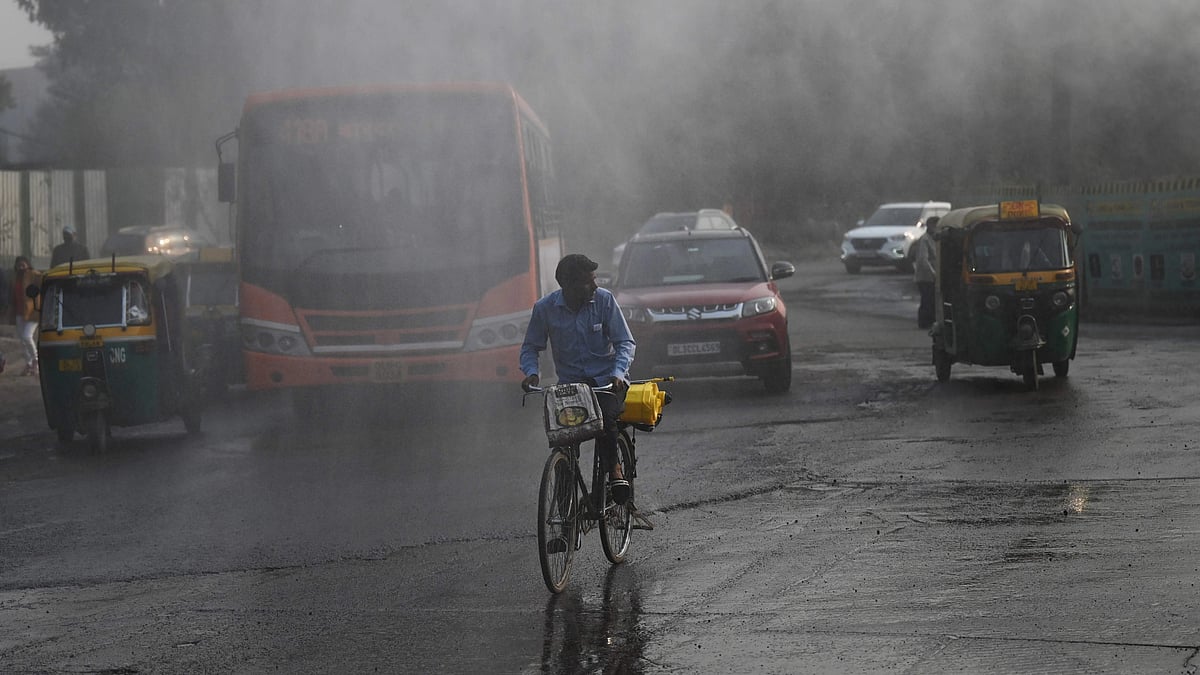The national capital is under siege. Haryana, which borders Delhi on its northern, western and southern sides, has thrown up a virtual wall of steel to prevent protesting farmers, largely from Punjab and Rajasthan but also in large numbers from within Haryana itself and neighbouring Uttar Pradesh, from entering Delhi. The media has been filled with images of farmers charging at metal barricades put up by the police, and in turn, being lathicharged and teargassed by the police and drenched by water cannons in freezing weather. Hundreds of protesting farmers have been arrested under stringent laws. All roads leading to the capital have been choked, with police barriers and increased checks, leading to massive traffic snarls. Delhi itself has been cut off from the National Capital Region, which extends into the three surrounding states.
All this to prevent the protest over the Centre’s three recently enacted farm laws, which it has claimed as the most significant reforms undertaken in the agriculture space since Independence. Farmers, on the other hand, are apprehensive that the three laws – the Farmers' Produce Trade and Commerce (Promotion and Facilitation) Act that allows agri-produce to be sold outside designated ‘mandi’ areas; the Farmers' (Empowerment and Protection) Agreement of Price Assurance and Farm Services Act, that essentially sets the rules for large-scale contract farming and the Essential Commodities (Amendment) Act, that removes major agricultural items like cereals, pulses, oilseeds, edible oils and potatoes from the ambit of the earlier law.
Farmers fear that the new laws will give an open hand to corporates and put an end to the government’s Minimum Support Price programme. The ruling BJP has accused the opposition of playing politics with reforms and misleading the farmers. It is true that political parties have sought to involve themselves – both the ruling Congress and the opposition Shiromani Akali Dal have backed the protesting farmers in Punjab, while the BJP-ruled Haryana has done its utmost to prevent the protesters from reaching Delhi. But the issues raised by the protest and the government’s response to it go far beyond the farm economy.
At heart is the right to dissent, which is at the core of any democracy. Claiming that the protesters are either misled or misinformed is one thing, using the might of the state to squelch the protest altogether is something else altogether. While most political parties have been sensitive to criticism while in power, the current BJP dispensation has shown itself to be particularly thin-skinned. Any form of dissent is seen as a direct attack on the party and its leadership. Critics are quickly branded anti-national or worse and colonial-era powers have been used repeatedly to muzzle dissent and free expression. This strikes at the core of India’s hitherto vibrant democracy, which has seen a range of political beliefs flourish. But without space for dissent, and without dialogue, discussion and compromise, democracy cannot exist, leave alone thrive.
FC Kohli: A visionary business leader
Faqir Chand Kohli, the legendary founding chief executive of India’s largest technology company, Tata Consultancy Services (TCS), who died on Thursday, was arguably the founder of India’s software and services sector revolution. India’s IT sector, which raked in revenues of close to $200 billion last year, has catapulted India to global superpower status in information technology. It has also created millions of well-paid jobs back home, which has, in turn, transformed India’s urban landscapes and driven the fabled India Growth Story.
It is easy to see the future trajectory of the IT sector today. But to have foreseen potential global opportunity back in 1969, when Kohli took over the reins of a fledgling TCS, is extraordinary. Though TCS started as a management consultancy, Kohli quickly turned the focus of operations to the emerging information technology sector. By the time he retired in 1995, TCS’s profits already equalled the profits of the rest of the salt-to-software conglomerate. Today, with revenues of over Rs 1.6 lakh crore and nearly half-a-million employees, TCS is the bulwark which supports the sprawling Tata empire.
But Kohli’s legacy transcends the extraordinary success of TCS. He foresaw the possibilities in tapping India’s vast pool of talented but low-cost engineers to service clients overseas, laying the foundation for India’s thriving software services exports sector. He also foresaw the need to create global class talent in India and was instrumental in the creation of IITs in Mumbai and Kanpur. He was an evangelist for the technology sector as a whole. Addressing the Computer Society of India in 1975, Kohli said, “Many years ago, there was an industrial revolution; we missed it for reasons beyond our control. Today there is a new revolution – a revolution in information technology…If we miss this opportunity, those who follow us will not forgive us for our tardiness and negligence.” India, thankfully, did not miss that bus. And for that, it owes this extraordinary business leader a debt of gratitude.









